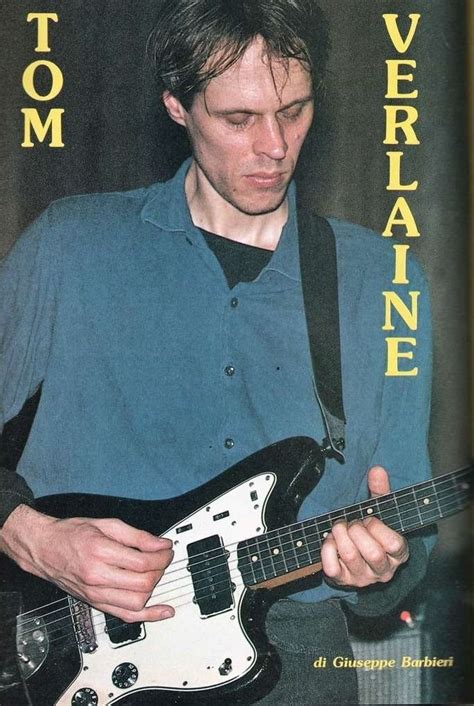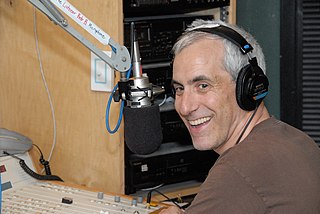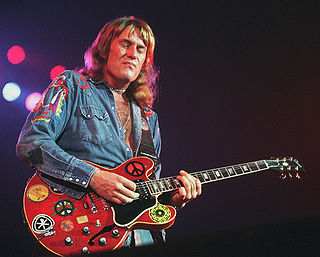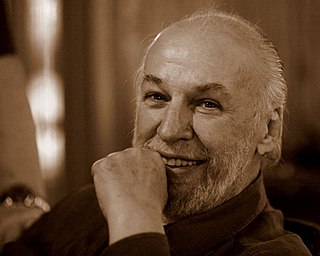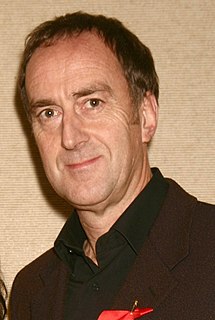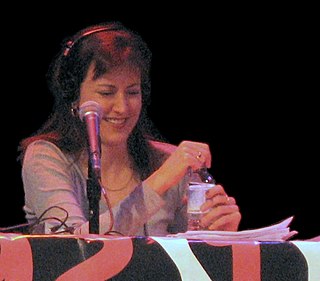A Quote by Daniel Alarcon
Radio, or at least the kind of radio we're proposing to do, can cut through that. It can reach people who would otherwise never hear your work, and of course I find that very notion inspiring. Radio stories are powerful because the human voice is powerful. It has been and will continue to be the most basic element of storytelling. As a novelist (and I should note that working my novel is the first thing I do in the morning and the very last thing I do before I sleep), shifting into this new medium is entirely logical. It's still narrative, only with different tools.
Quote Topics
Basic
Because
Been
Before
Continue
Course
Cut
Different
Element
Entirely
Find
First
First Thing
Hear
Human
Human Voice
Inspiring
Kind
Last
Least
Logical
Medium
Morning
Most
Narrative
Never
New
New Me
Note
Notion
Novel
Novelist
Only
Otherwise
People
Powerful
Radio
Reach
Shifting
Should
Sleep
Still
Stories
Storytelling
The First Thing
Thing
Through
Tools
Very
Voice
Will
Work
Working
Would
Your
Related Quotes
There were a lot of things I listened to, but so-called pop music never killed me, you know, the type of stuff that always seems to make it on the radio. The whole radio thing seems so... it's like they've accepted the whole "new wave" thing only because this kind of pop element came into it. In Europe they really love emotion, but here it's like, "let's stay away from it because we might cry or something".
Radio is the medium that most closely approximates the experience of reading. As a novelist, I find it very exciting to be able to reach people who might not ever pick up one of my books, either because they can't afford it (as is often the case in Latin America), or because they just don't have the habit of reading novels.
I turn on the radio. I'm a really big fan of old-fashioned dial radio. I love WNYC and NPR and also 88.3 in New York, which is the jazz station, and it's usually good for background music. If I'm not in New York City or by a traditional radio, I'll stream it on my phone, although I usually try not to look at my phone first thing in the morning.
Listen- my relationship with radio on a personal level is nothing but a one way love-a-thon... I love radio, I grew up on radio. That's where I heard Buddy Holly, that's where I heard Chuck Berry. I couldn't believe it the first time I heard one of my records on the radio, and I STILL love hearing anything I'm involved with on radio, and some of my best friends were from radio. But we were on different sides of that argument, there's no question about that.
College radio is a very important medium that needs to survive in difficult economic times when some stations are being sold off and shut down. College radio is the future for broadcasting stars and pioneers of tomorrow, and we as a band, Coldplay, support the vital mission of college radio and we also support College Radio Day, the day when college radio comes together.
I wrote 'Turn Your Radio On' in 1937, and it was published in 1938. At this time radio was relatively new to the rural people, especially gospel music programs. I had become alert to the necessity of creating song titles, themes, and plots, and frequently people would call me and say, 'Turn your radio on, Albert, they're singing one of your songs on such-and-such a station.' It finally dawned on me to use their quote, 'Turn your radio on,' as a theme for a religious originated song, and this was the beginning of 'Turn Your Radio On' as we know it.


